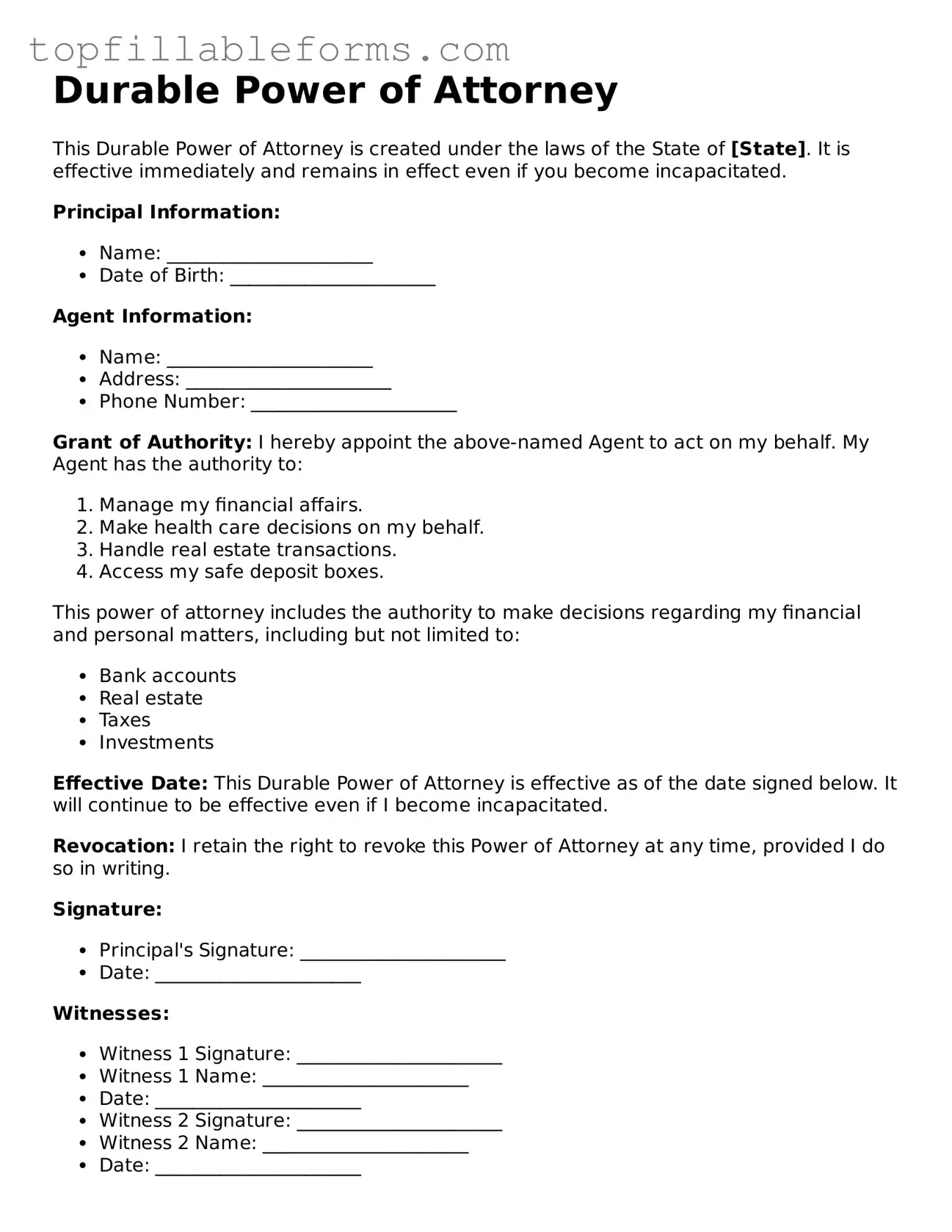Free Durable Power of Attorney Form
A Durable Power of Attorney is a legal document that allows one person to appoint another to make decisions on their behalf, particularly regarding financial and medical matters, when they are unable to do so themselves. This form remains effective even if the person who created it becomes incapacitated. Understanding how this document works can provide peace of mind and ensure that your wishes are honored during challenging times.
Open Durable Power of Attorney Editor Here

Free Durable Power of Attorney Form
Open Durable Power of Attorney Editor Here
Finish the form now and be done
Finish your Durable Power of Attorney online by editing, saving, and downloading fast.
Open Durable Power of Attorney Editor Here
or
▼ PDF File
